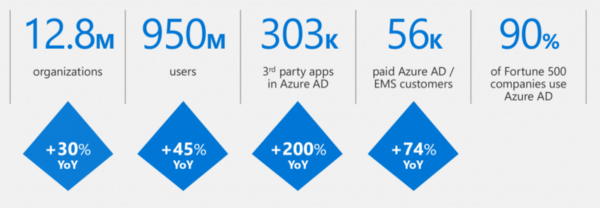

One of the technology trends emerging today can be found in various analytic firms, consultants, and the like recommending that their clients invest in multi-cloud infrastructure and distribute workloads between AWS and Azure rather than using either of them exclusively. Although this was not the first time that multi-cloud was brought to my attention, I hadn’t given it much thought before a Gartner analyst began suggesting that route for the government’s new JEDI project. But I have since developed reservations against multi-cloud as it does not pass the smell test, at least with respect to the cloud solutions presently available in their present which I will outline here.


"For starters, it’s important to point out that Azure is a distant second to AWS from a financial perspective, both from the perspective of its financial performance in the market and the performance their clients can find within it."Further and while they’re similar in licensing costs and entry burden, another major setback of Azure is the ownership costs found after purchase associated with it. Compared to AWS, Azure comes with much more downtime, is much more complex and has significantly more attack vectors than AWS, and consequently requires much more staffing to keep a tight ship due to all of this. All of which seems minor to some at first, but it’s important to remember that productivity lost from downtime is the #1 IT expense for any company. #2 is the staffing required to manage and support technology while #3 is the initial cost of the solution which is odd given how much priority is given to the entry burden of solutions these days.
With all of this in mind, the notion of multi-cloud between AWS and Azure seems quite ludicrous. Since competitive trade is a form of war and that efficiency is their plane of battle, it wouldn’t make sense to distribute half of your technological needs on a hyper-efficient platform while artificially limiting the other half of your infrastructure by distributing it on a much less efficient platform and artificially limit productivity while increasing downtime and staffing costs as a consequence.
"The simplest solutions are the most profitable along with being the easiest to fix, upgrade, support, warranty, and scale."For comparison, this is as irrational as a country comprising their air forces with an equal distribution of P-51 Mustangs and A10 Thunderbolts or any company outfitting their office with 50/50 distribution of MacBooks and Surfaces. While multi-cloud may hold water under circumstances where competing platforms were at all comparable, the deltas between their relative complexities and efficiencies of AWS and Azure are too significant to dignify and companies would not achieve the efficiency within multi-cloud that they could achieve on AWS alone.
Even worse, it is well-known in engineering and architecture that simplicity wins. The simplest solutions are the most profitable along with being the easiest to fix, upgrade, support, warranty, and scale. Although they tend to cost more upfront, they tend to generate less downtime and require the least amount of staffing among their competitors and cost less in the long run when looking at the whole. But when you go multi-cloud, your complexity doubles at an optimistic minimum, as do your costs from staffing and downtime, and this is especially the case when going multi-cloud with AWS and Azure. Taking such a hit to complexity isn’t justifiable unless there is a significant financial reward that I have yet to see from Azure.
"Ironically and based on most objective measures, the only time that a company should ever be in a state of AWS and Azure coexistence is when you’re migrating all of your workloads over to AWS with the intention of relying on it exclusively."In summary and while upfront costs are similar, Azure is nowhere near the financial performance of AWS nor can it come near offering the operational efficiencies companies can achieve with AWS. Distributing your cloud resources across multiple cloud hosts also only makes sense if said hosts are remotely comparable which Azure is not to AWS. It artificially limits your efficiency across half of your infrastructure while increasing its overall complexity and the costs associated with its upkeep. Ironically and based on most objective measures, the only time that a company should ever be in a state of AWS and Azure coexistence is when you’re migrating all of your workloads over to AWS with the intention of relying on it exclusively. The same goes for Google, IBM, Oracle, and the like for now.
"It’s important to remember that chaos is a ladder for consultants and that many operate with a conflict of interest, are paid to play by their vendors, and often engineer little else than their own necessity."Although there may be extreme outliers, multi-cloud infrastructure only seems viable if you will never be around to actually implement it, support it, or operate within such an environment ripe for chaos. It’s important to remember that chaos is a ladder for consultants and that many operate with a conflict of interest, are paid to play by their vendors, and often engineer little else than their own necessity. All of which may explain why they love the idea of multi-cloud so much in the first place.
However, if it is your goal to pay a heavy idiot tax for your infrastructure then by all means ignore the fundamentals of IT finance and engineering philosophy in favor of magic quadrants fueled by proprietary algorithms from the likes of Gartner, then go multi-cloud. Maybe go with G-Suite and Office 365 simultaneously for reasons unknown and throw even more money into the enterprise bonfire while you’re at it. ⬆
Addendum
Halloween documents (Halloween Document VI to be more specific) on the Gartner Group:
